|
今まで生きてきてこんな腹立たしく悔しい思いをしたことがありません。
Never in my life have I felt more angered and vexed.
学校の前で子どもたちに聞こえるように“スパイの子どもたち!”“朝鮮学校を日本からたたきだせ!”などと 人として信じられない暴言を拡声器の爆音をもって騒ぎ立てました。
Those racists shouted at the top of their voices even with the use of a loud speaker, “ You, Children of Spies! “ “ Bounce Korean schools out of Japan!,”with a clear intention of making themselves heard by the schoolchildren inside.
子どもたちはおびえて、中には涙を流すこどもたちもいたそうです。
Many children were so scared that some even wept with fear.
私が悔しい、腹立たしいと思ったのは、何もその団体に感じたことではありません。
It was not towards the specific racist group that I felt most anger and vexation.
朝鮮語のことわざに“糞を避けるのは怖いからで無く汚いからだ”という言葉があります。
私が本当に許せないのはこのような事態が許されている“この社会の規律と良識”に感じています。
A Korean proverb goes, ‘ we shun away shit not because it is fearful but because it is filthy.’ It is “ the principle and conscience of this society “ which overlooks this kind of violence that I do feel I cannot tolerate.
当日警察も子どもたちがおびえてるにもかかわらず“自分たちは間に入っている立場”とし
制御しようともしない。スピーカを校門のまん前で校舎に向けて騒いでるにもかかわらず禁止させない。
On that day, despite the scare children had, the local police did not dare to put the racists under control, justifying their position as “neutral.” The police simply refrained from prohibiting the bunch from shouting at the front gate with a loudspeaker directed at it.
これが言論の自由ですか?法や警察はこどもを守ってくれないというのがむなしくてたまりませんでした。
Was that the freedom of speech? I felt so devastated, thinking that laws and police would not protect our children in this society.
自由使用の公園なのにも関わらず“不法占拠”とののしり、地域の方々も使っているゴールポストを動かしたり、利用する子どもの安全のために設置されたスピーカーの線を切り、朝礼台と一緒に校門前に投げつける暴挙。
器物破損ではないのですか?強制執行は一般市民に権限があるのですか?
Their violence got escalated from the verbal abuse of condemning as ‘illegal monopoly’ the use by the school—as the playground or for morning school assemblies—of the adjacent local public playground for free use, to moving around the goal post for footbool games which locals use as well, to cutting of the cable of the announcing speaker installed for the safety of local children who use the playground and finally to throwing the cable with the stand at the front gate.
Weren't these deeds all so-called ‘ damage to property,’thus constituting a crime? Did these racists have the right to compulsory executions, as they said, on behalf of the police?
子どもたちがおびえ、泣いているのに脅迫罪ではないのですか?そこにいる個人や団体を誹謗中傷し 侮辱罪ではないのですか?
Did'nt their deeds of threatening children constitute the crime of duress, even though the scared minors were crying inside? Was it not the crime of insult for them to shout baseless slanders and verbal abuses towards the individuals and the group of people nearby?
日本は多くの先進国が批准している人種差別撤廃条約に加盟してないから許されるのですか?
Were their deeds permissible in this society because Japan has not signed to the International Convention on the Elimination of All Forms of Racial Discrimination? (*)
そこに駆けつけた私たちは声がかれるまで警察に訴えたのに取り合ってくれませんでした。
Terrified parents, on hearing about this situation, rushed to the school and asked, till their voices got hoarse, the police officers on the spot to put the racists under control, to no help and response from them.
私は学校に駆けつける前に、某大学で人権教育の招かれ、“人権とこどもの学ぶ権利”を物知り顔で 語っていました。このときほど“人権と子どもの学ぶ権利”が虚しく聞こえたときはありません。
Before rushing to the school, I had been at a certain university for an invited lecture on education of human rights, knowingly talking to the audience about the human rights and the rights of children to study. But soon after I heard about the incident at the school, I myself felt so hollow about my lecture theme—the emptiest moment in my long belief in it.
私はこの問題が一部のレイシスト集団の問題ではなく、それを許容する日本社会の“良識”を問いたいです。
I would like to question the good sense of Japanese society, for I consider this not the simple matter of the violence by racists groups, but the matter of the society itself which tends to tolerate them.
たしかにこのような集団は日本人の一部かもしれません。
“日本人は悪い人ばかりではありません。信じてください”とおっしゃりたい方もいるでしょう。
そういう意味では日本の方々も被害者かもしれませんが、今回の問題の本質ではありません。
Surely these racist groups are only a small portion of Japanese population.
Some may want to say to us, “ Not all Japanese are racists. Believe us.”
In such a sense, some conscientious Japanese may have felt pains due to this incident as well, but that is not essential to my question.
明確にこのような事態が起こったことは、これが許されたことになると思います。
What happened on that day implies it is permissible in this society.
いまこそ“日本社会の良識”にとうべきだと思っています。
Now is the time for the threatened to question ‘ the good sense of Japanese society.’
いままで本当に悔しい思いをいっぱいしてきましたが、もうたくさんです。
今後このような事態が起こったとき、また私たち朝鮮人は門扉の前で歯を食いしばり、
血の涙をのみながら我慢に我慢を続けないといけないのでしょうか?
So far, we, Korean residents in Japan have endured a lot of vexations and insults, but enough is enough. Would we have to bear another such humiliation, standing at the front gate of the school, with our teeth clenched, shedding tears out of our mortified prides as decent human beings, thinking we have to bear this endlessly?
正直なところ、今回子どもたちに“守ってやれなくて申し訳ない”との考えが頭を離れず夜も悔しくて 眠れませんでした。
Honestly, I have had some sleepless nights, never getting rid of the regret and pity, towards our children, that we “could not protect them” on that day.
無くなった祖父母や一世たちが空の上からこの事態を見ているならば、どんな思いをしてるでしょうか?
自分たちの曾孫までもこんな仕打ちをされているのかと嘆き苦しんでいるでしょう。
How would our long-passed away ancestors and the first generation of Korean residents feel in the heaven to have seen that violence down here. They would be in grief and pains to have known that not only their children and grandchildren but also their great-grandchildren suffer such humiliation.
長々と書きたて、最後まで読んでいただきありがとうございます。
もうこのような事態が起こらぬよう、皆さんどうかこの社会の良識あるべき姿を考えてください。
Thank you for your attention to my lengthy email.
I would like Japanese people to consider what a society with the good sense would be like, so that this kind of situation will never happen here.
・・・・・・・・・・・・・・・・・・・・・・・・・・・・・
(* 日本は1995年に加盟したが、拘束力のある法を制定していないので、勧告をうけている。
Japan signed to this convention in 1995, but has not set up any effective laws on this,
thus receiving suggestions by the UN relating committee. )"
|




![[URGENT PLEA: In Update] EMERGENCY in GANGJEONG Since AUG. 24, 2011](http://2.bp.blogspot.com/-3iz8k-USXVY/TlmRYhhIYtI/AAAAAAAAL2c/9dbF85ZIkIs/s227/jejusit.jpg)
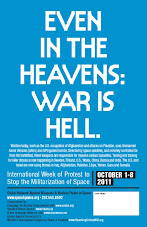


![[Solidarity from Japan for the Jeju] 253 individuals and 16 groups/organizations](http://2.bp.blogspot.com/_gnM5QlRx-4c/TR_YeNVE1yI/AAAAAAAAHWQ/ARyf6oQN0S0/S227/jeju_12_10j.jpg)
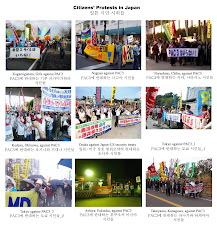
![[Translation] Korean organizations' statement: Immediately cancel the joint ROK-US drill Nov 26](http://2.bp.blogspot.com/_gnM5QlRx-4c/TPOE8VKXHFI/AAAAAAAAGlM/8lryt-8sFjc/S227/1.jpg)
![HOT! [Hankyoreh Hani TV] Beneath the Surface: the investigation into the sinking of the Cheonan](http://4.bp.blogspot.com/_gnM5QlRx-4c/TOI83qht8aI/AAAAAAAAGXU/22SW6Q5ntV8/S227/HaniTV%2BCheonan.gif)
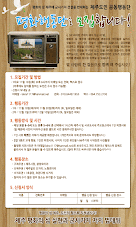
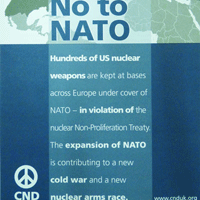

![[Translation]Statement against illegal inspection and unjust lay-off by the Kunsan USAFK!(Nov_2010)](http://4.bp.blogspot.com/_gnM5QlRx-4c/TOPLsVkZMqI/AAAAAAAAGZs/3YnnckIyAaY/S227/gunsan%2Bprotest.gif)
![[Translation] Korean organizations' statement against dispatching special force to the UAE on Nov.](http://4.bp.blogspot.com/_gnM5QlRx-4c/TOP95zHXlCI/AAAAAAAAGak/E0Ug1XtUFfM/S227/antiwarpeace.jpg)
![[Translation] Stop, Joining MD!: South Korean activists' statement and writing on Oct. 25, 2010](http://3.bp.blogspot.com/_gnM5QlRx-4c/TOP7Es4_2sI/AAAAAAAAGac/eWVMPD-U4p0/S227/StopMD.jpg)
![[In Update] People First, NO G-20 (Nov. 6 to 12, Korea)](http://2.bp.blogspot.com/_gnM5QlRx-4c/TJd53XBzHlI/AAAAAAAAFQo/ldO9JPE3eqo/S227/left21_G20.jpg)
![[International Petition] Stop US helipad plan in Okinawa to save great nature](http://4.bp.blogspot.com/_gnM5QlRx-4c/TKC2AHRNzBI/AAAAAAAAFUo/yGWXODTw_uM/S227/yanbaru_w.jpg)

![[Global Network] against the first launch of Quasi-Zenith Satellite, Japan, on Sept. 11, 2010](http://4.bp.blogspot.com/_gnM5QlRx-4c/TIowa1boy4I/AAAAAAAAFDI/82rAi98uq-c/S227/Qzss-45-0_09.jpg)

![[In update] Some collections on the Koreans’ protests against the sanction & war on Iran](http://4.bp.blogspot.com/_gnM5QlRx-4c/TJMvke6t8zI/AAAAAAAAFO4/tamQ8LUnOOA/S227/No+Sanction+on+Iran.jpg)
![[Three International Petitions] to End the Korean war and peace treaty(or peace resolution)](http://1.bp.blogspot.com/_gnM5QlRx-4c/THef7bzWxYI/AAAAAAAAE44/wwdzSDfYhdw/S227/border.jpg)
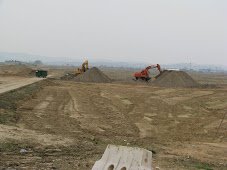


![[Collection of Documents] No Base Learning and Solidarity Program_Korea(June 14 to 20, 2010)](http://1.bp.blogspot.com/_gnM5QlRx-4c/TCTvVuN8NeI/AAAAAAAAEek/8vBJVaHdk10/S227/No-Base-banner.jpg)
![Site Fwd:[John Hines] A U.S. Debate coach’s research trip on the Issues of Korea](http://3.bp.blogspot.com/_gnM5QlRx-4c/TINCO36mzzI/AAAAAAAAE_w/Rds12NcBOXM/S227/Jeju-Peace-Tour.jpg)


![[News Update] Struggle Against the Jeju Naval Base since Jan. 18, 2010](http://1.bp.blogspot.com/_gnM5QlRx-4c/S1vvWaP25uI/AAAAAAAACkg/QvpW1tgOlKM/S226/scrum1.jpg)


![[Urgent] Please spread the Letter!: There was no Explosion! There was no Torpedo! (May 26, 2010)](http://4.bp.blogspot.com/_gnM5QlRx-4c/S_9JmsKEU7I/AAAAAAAAEP8/sAWjSPqxzUI/S227/grounded.jpg)
![Text Fwd: [Stephen Gowans]The sinking of the Cheonan: Another Gulf of Tonkin incident](http://1.bp.blogspot.com/_gnM5QlRx-4c/TAL_FtYKQ-I/AAAAAAAAERE/NEEMijiEcRM/S227/lee-myung-bak.jpg)
![[Japan Focus]Politics in Command: The "International" Investigation into the Sinking of the Cheonan](http://1.bp.blogspot.com/_gnM5QlRx-4c/TBMJ2syJzyI/AAAAAAAAEZU/uTYZccU5vyk/S227/wen_jiabao_and_lee_myungbak.png)
![[Japan Focus] Who Sank the SK Warship Cheonan? A New Stage in the US-Korean War and US-China](http://2.bp.blogspot.com/_gnM5QlRx-4c/S_iQ2vE5ZpI/AAAAAAAAEOU/Oo1SPcAe8FE/S227/buoy_map.gif)
![[Updated on 12/13/10] [Translation Project] Overseas Proofs on the Damages by the Military Bases](http://4.bp.blogspot.com/_gnM5QlRx-4c/S-qSj59gPLI/AAAAAAAAEGM/mwjlFtPE-jo/S227/missile.jpg)
![[International Petition] Close the Bases in Okinawa](http://3.bp.blogspot.com/_gnM5QlRx-4c/S8-z3DYNwNI/AAAAAAAADo4/OswTSchK09M/S227/2.jpg)

![[In Update]Blog Collection: No Korean Troops in Afghanistan](http://4.bp.blogspot.com/_gnM5QlRx-4c/SwnlLD9IewI/AAAAAAAAB9E/oUPssnpNidA/S226/No-Troops-to--Afghanistan.jpg)
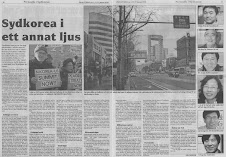

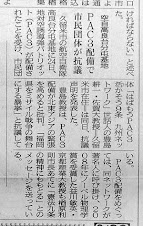

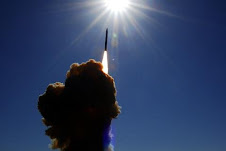



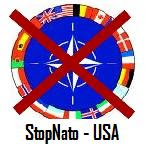


No comments:
Post a Comment